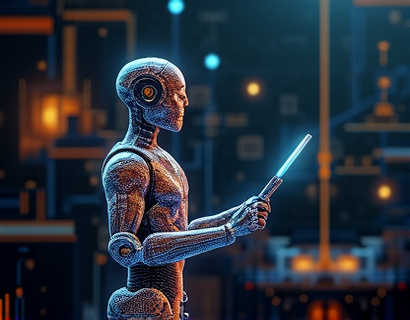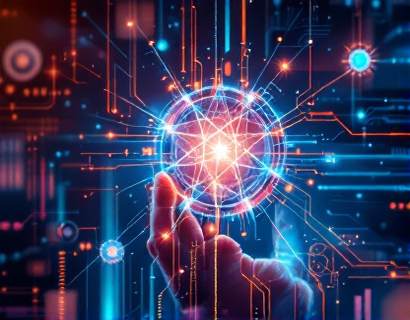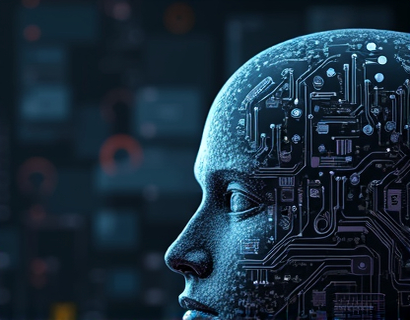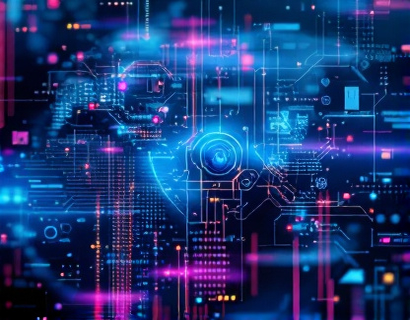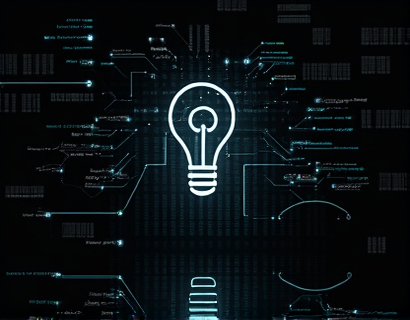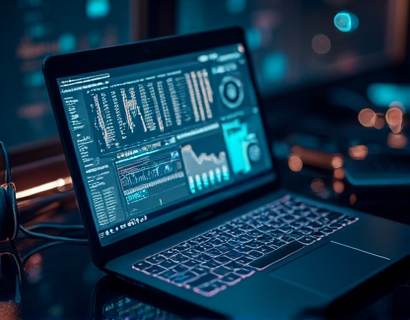Unleashing Next-Gen Digital Ecosystems: The Synergy of AI and Crypto
The intersection of artificial intelligence and cryptocurrency is giving birth to a new era of digital ecosystems, transforming how innovators approach technology and connectivity. This fusion is not just an evolution but a revolution, offering unprecedented tools and strategies that redefine user experiences in the crypto space. As we delve into this topic, it's essential to understand the foundational elements that make this synergy possible and the profound impact it has on various sectors.
The Foundations of AI and Crypto
Artificial intelligence, with its ability to process vast amounts of data, learn from patterns, and make decisions with minimal human intervention, has become a cornerstone of modern technology. In the context of cryptocurrency, AI plays a pivotal role in enhancing security, optimizing transactions, and creating more sophisticated financial instruments. Cryptocurrency, on the other hand, represents a decentralized and secure form of digital currency, leveraging blockchain technology to ensure transparency and immutability.
The combination of these two technologies creates a powerful platform for innovation. Blockchain's inherent characteristics, such as decentralization, transparency, and security, provide an ideal environment for AI algorithms to operate efficiently and reliably. This synergy enables the development of smart contracts that can execute complex tasks autonomously, paving the way for automated and trustless systems.
Enhancing Security Through AI
One of the most significant benefits of integrating AI into cryptocurrency ecosystems is the enhancement of security measures. Traditional security protocols can be vulnerable to sophisticated attacks, but AI can detect and mitigate threats in real-time. Machine learning algorithms analyze patterns and anomalies in transaction data, identifying potential fraud or malicious activities before they cause damage.
For instance, AI-driven systems can monitor blockchain networks for unusual patterns that may indicate a 51% attack or other forms of manipulation. By continuously learning from new data, these systems become more adept at recognizing and neutralizing threats, ensuring the integrity of the network. This proactive approach to security is crucial for building trust among users and fostering the growth of the crypto market.
Optimizing Transactions with AI
AI also plays a crucial role in optimizing cryptocurrency transactions. Traditional methods of transaction processing can be slow and costly, but AI can streamline this process by predicting transaction volumes, optimizing routing, and reducing fees. Smart contracts powered by AI can automatically execute transactions based on predefined conditions, eliminating the need for intermediaries and reducing transaction times.
Moreover, AI can enhance the user experience by providing personalized transaction recommendations. By analyzing user behavior and market trends, AI systems can suggest the best times to buy or sell cryptocurrencies, maximizing returns and minimizing risks. This level of personalization is a game-changer for individual investors and institutional players alike, making the crypto market more accessible and efficient.
Innovative Financial Instruments
The fusion of AI and crypto is giving rise to new financial instruments that leverage the strengths of both technologies. Decentralized finance (DeFi) platforms, for example, use AI to create more sophisticated lending, borrowing, and trading mechanisms. These platforms offer a range of services, from stablecoins and decentralized exchanges to yield farming and synthetic assets, all powered by AI-driven algorithms.
AI can also enhance risk management in these platforms by providing real-time analytics and predictive modeling. By assessing various factors such as market volatility, liquidity, and user behavior, AI can help DeFi protocols make informed decisions, reducing the likelihood of losses and increasing overall stability. This level of sophistication is essential for the adoption and growth of decentralized financial systems.
User Experience and Personalization
One of the most transformative aspects of AI in cryptocurrency ecosystems is the improvement of user experience through personalization. AI algorithms can analyze vast amounts of user data to create tailored experiences that meet individual needs and preferences. This personalization extends to everything from user interfaces to investment strategies, making the crypto space more user-friendly and engaging.
For example, AI-powered chatbots can provide 24/7 customer support, answering queries and guiding users through complex processes. These chatbots can understand natural language, making interactions more intuitive and efficient. Additionally, AI can curate content and recommend resources based on a user's interests and activity, helping them stay informed and up-to-date with the latest developments in the crypto world.
Marketing and Strategic Advantages
The integration of AI in cryptocurrency marketing offers significant strategic advantages. AI-driven analytics can provide deep insights into market trends, consumer behavior, and competitor strategies, enabling businesses to make data-driven decisions. By understanding the nuances of the crypto market, companies can develop more effective marketing campaigns that resonate with their target audience.
AI can also automate marketing processes, such as content creation, social media management, and email campaigns. This automation not only saves time but also ensures consistency and accuracy in messaging. Moreover, AI can enhance customer segmentation, allowing businesses to target specific groups with personalized offers and promotions. This level of precision in marketing can lead to higher conversion rates and customer loyalty.
Challenges and Considerations
While the synergy of AI and crypto offers numerous benefits, it also presents challenges that must be addressed. One of the primary concerns is the regulatory landscape. As AI and crypto continue to evolve, regulatory bodies are grappling with how to oversee these technologies. Compliance with regulations is crucial to avoid legal issues and maintain trust among users.
Another challenge is the technical complexity involved in integrating AI into cryptocurrency systems. Developing robust and secure AI algorithms requires expertise in both fields, which can be a barrier for some organizations. Additionally, the ethical implications of AI, such as bias and privacy concerns, must be carefully managed to ensure responsible use.
Future Prospects
The future of AI and crypto is bright, with numerous possibilities on the horizon. As technology advances, we can expect even more sophisticated applications of AI in the crypto space. For instance, the development of AI-driven predictive models could revolutionize financial forecasting, enabling more accurate predictions of market trends and price movements.
Furthermore, the integration of AI with other emerging technologies, such as the Internet of Things (IoT) and quantum computing, could lead to entirely new paradigms in digital ecosystems. IoT devices can generate vast amounts of data that AI can analyze to optimize crypto transactions and enhance user experiences. Quantum computing, with its potential to solve complex problems faster than traditional computers, could further accelerate the development of AI algorithms in the crypto domain.
In conclusion, the fusion of AI and crypto is unlocking new possibilities for innovators and users alike. By enhancing security, optimizing transactions, creating innovative financial instruments, and improving user experiences, this synergy is redefining the digital landscape. As the technology continues to evolve, the potential for transformation in various sectors is immense, paving the way for a more connected and intelligent future.





